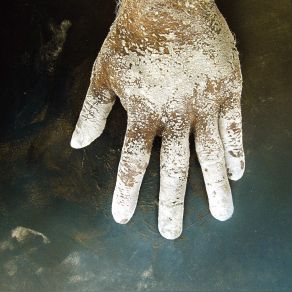Night of Your Ascension
Download links and information about Night of Your Ascension by Wrekmeister Harmonies. This album was released in 2015 and it belongs to Electronica, Rock, Black Metal, Progressive Rock, Metal, Death Metal, Alternative, Classical genres. It contains 2 tracks with total duration of 48:47 minutes.

|
|
|---|---|
| Artist: | Wrekmeister Harmonies |
| Release date: | 2015 |
| Genre: | Electronica, Rock, Black Metal, Progressive Rock, Metal, Death Metal, Alternative, Classical |
| Tracks: | 2 |
| Duration: | 48:47 |
| Buy it NOW at: | |
| Buy on iTunes $9.99 | |
| Buy on Songswave €1.37 | |
| Buy on iTunes 0 | |
Tracks
[Edit]| No. | Title | Length |
|---|---|---|
| 1. | Night of Your Ascension | 32:00 |
| 2. | Run Priest Run | 16:47 |
Details
[Edit]Wrekmeister Harmonies is the project of composer, arranger, and multi-instrumentalist J.R. Robinson. His collective shifts personnel with each release and concert. Robinson's musical specialty is the "epic" — long suite-like works composed of many parts, textures, timbres, and dynamics, comprising ambient soundscapes, doom metal, post-rock, and experimental post-classical composition. Night of Your Ascension features the contributions of over 30 musicians including Marissa Nadler, Scout Paré-Phillips, Olivia Block, Alexander Hacke, harpist Mary Lattimore, Chris Brokaw, Cooper Crain, and various members of Corrections House, Yakuza, Indian, and the Body. Its two pieces are based on a duo of notorious historical figures (who lived five centuries apart) inseparably associated with the Roman Catholic Church. The half-hour title work is based around the madrigal "Ahi Dispietata e Cruda" from Don Carlo Gesualdo's third book. Gesualdo brutally murdered his wife and her lover in 1590. He was never convicted, and he continued to receive regular commissions from the church, but his bloodguilt eventually destroyed him. Gesualdo's madrigals had a profound influence on composers from Igor Stravinsky and Peter Maxwell Davies to Alfred Schnittke, Salvatore Sciarrino, and Wolfgang Rihm. Robinson smoothed the strange, experimental dissonances in Gesualdo's composition, and extended it exponentially while still focusing on its central motifs. Modal explorations in the key of A on organ and in layered vocals by Nadler introduce it. Very slowly, sparse keyboards and ambient sonics add dimension, shaping a space for the entry of cello, harp, and a liturgical choir. It's stirring, haunting. Halfway through, beauty meets the beast: doomy, distorted guitars, bass, processional drums, and microtonal throat singing (Tibetan style) emerge. The drama increases until it becomes full-on blackened metal with all ritualism replaced by shrieks and growls, blown-out noise, and blastbeats. The effect is withering. "Run Priest Run's" subject is a convicted pedophile, defrocked priest John Goeghan, who was murdered while in prison by an inmate in 2003. This work slowly unfolds with Paré-Phillips' siren-like singing in the backdrop, framed by washed-out industrial noise and percussion loops. Before long, low-tuned basses and guitars, drums, and keyboards come crashing through in turbulent waves. Her voice becomes an operatic soprano as the piece intensifies, bass rumbling and quaking, noise and feedback spiraling. The thudding tom-toms hold the tension — but barely. Tormented shrieking, howling, and explosive bass take it over the margin — à la Sunn 0))) — until a crescendo downshifts quickly into an eerie, near chamber work, a lone violin and white noise carrying it out. The final feeling is one of having been hunted. On Night of Your Ascension, Robinson reveals the inner shadow realities of depravity and violence as the other side of institutional religion's public persona. Alternately brutal and exquisite, it is chilling, effective, and even necessary.